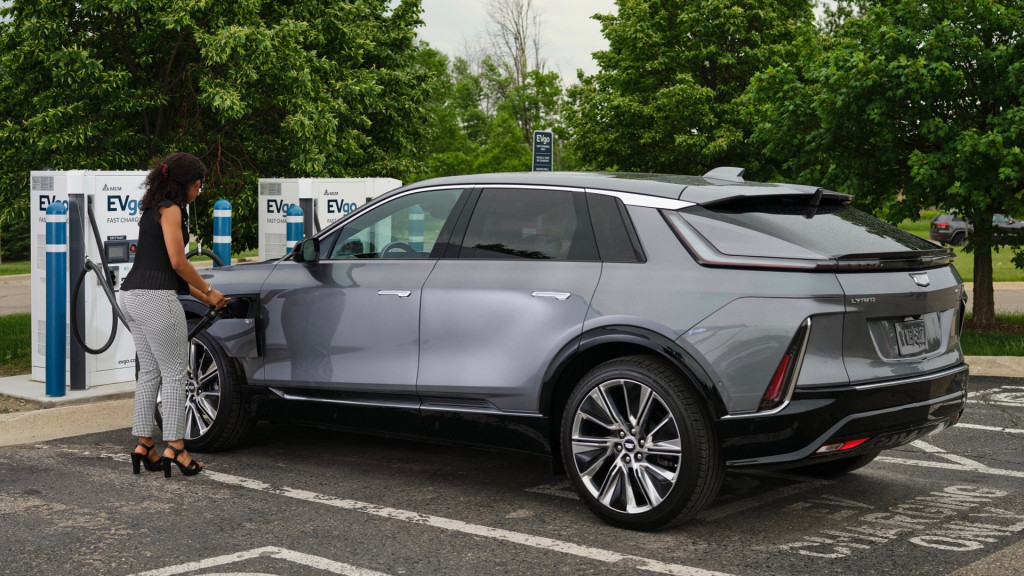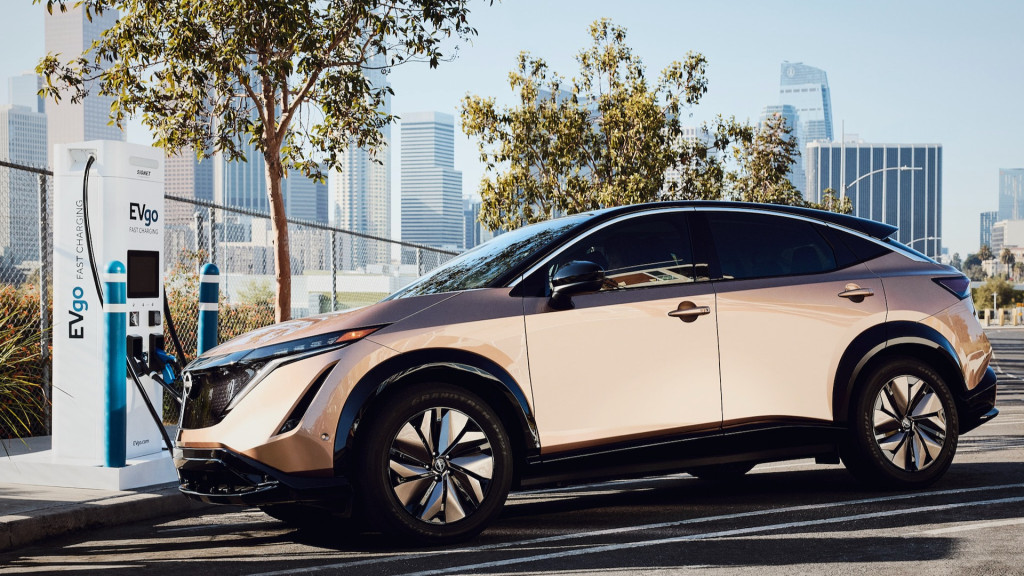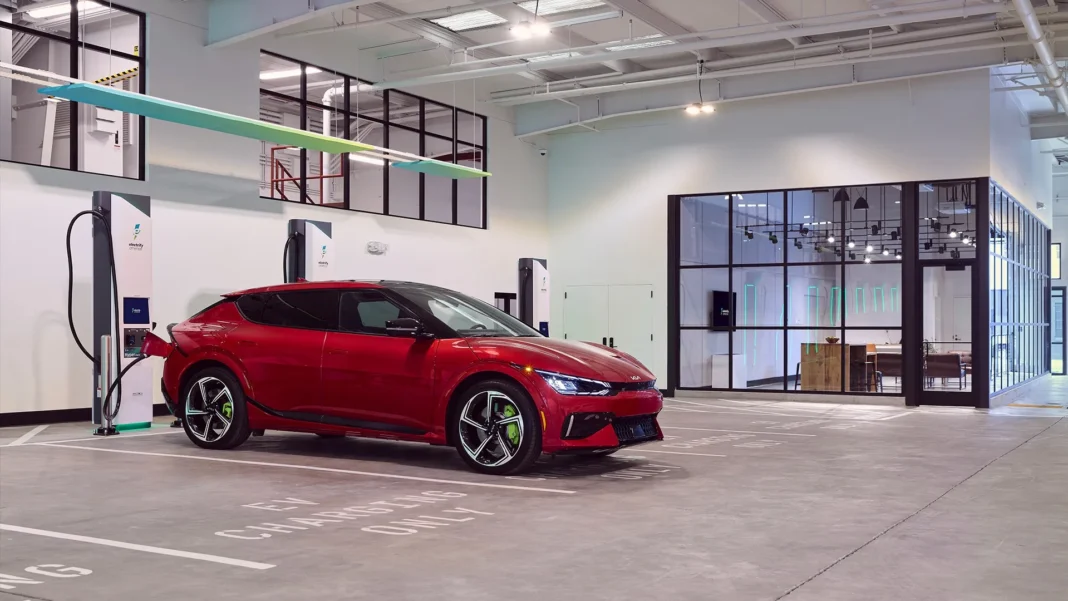A consortium of stakeholders aims to roll out a universal plug-and-charge protocol for the U.S. in 2025, allowing all electric vehicles to automatically start charging at public stations simply by plugging in.
Announced Wednesday, the initiative is being undertaken by the Society of Automotive Engineers (SAE), the federal government’s Joint Office of Energy and Transportation, and the Electric Vehicle Public Key Infrastructure (EVPKI) consortium, which represents automakers, charging networks, hardware manufacturers, and other private interests.

2023 Cadillac Lyriq at EVgo DC fast-charging station.
Some automakers have been rolling out plug-and-charge piecemeal, often packaged as part of charging ecosystems for each brand’s customers. But that’s left a range of situations in which plug-and-charge will work with some vehicle-and-charger or vehicle-and-network combinations but not others. This new effort aims to shift reliance away from individual automakers or specific hardware or software variations and make plug-and-charge the norm.
That means developing a common framework that allows all EVs, chargers, and charging networks to seamlessly communicate, a press release from the Joint Office of Energy and Transportation, a collaboration between the Department of Energy (DOE) and Department of Transportation (DOT), said. The office was created under the Biden administration’s infrastructure law to serve as the main point of contact for the administration’s national EV charging network plan.

2023 Nissan Ariya at EVgo charging station
Key to this is a Certificate Trust List (CTL) to be developed by the consortium members. It would essentially be a compendium of vehicles, hardware, and payment platforms that meet certain standards. The goal is to allow for quick authentication when a vehicle is plugged in to charge, by pre-clearing adherents to these standards. The consortium also aims for robust cybersecurity measures, something the federal government has been investigating since at least 2022.
No timeline was given for the full rollout of this evolution of plug-and-charge, but the initiative takes EV charging a further step away from the bad old days of requiring multiple accounts, cards, and fobs to access all public charging stations.
